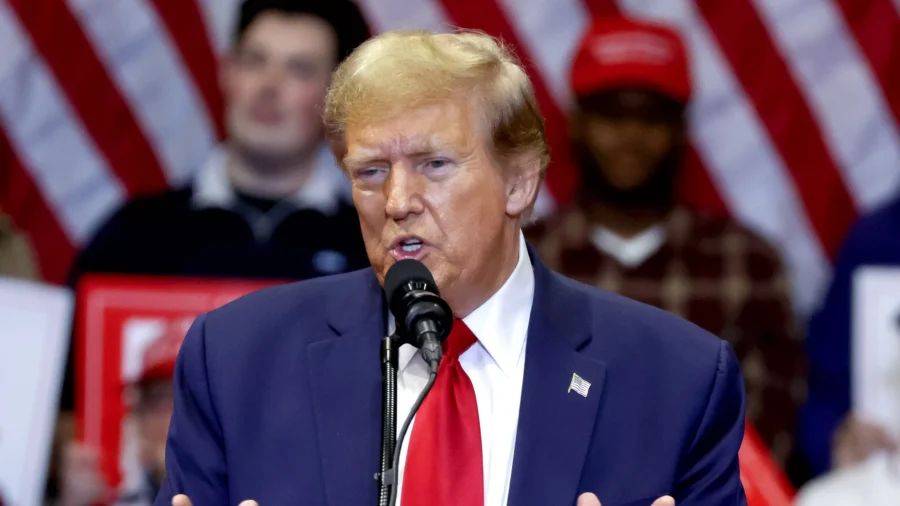Former President Donald Trump asked the Supreme Court on March 19 to hold that he and other former presidents enjoy absolute criminal immunity from prosecution of conduct involving their official acts during their time in office.
“From 1789 to 2023, no former, or current, President faced criminal charges for his official acts—for good reason,” President Trump’s brief reads. “The President cannot function, and the Presidency itself cannot retain its vital independence if the President faces criminal prosecution for official acts once he leaves office.”
His briefing is the latest of many filed by his legal team and Special Counsel Jack Smith before the court’s scheduled oral argument on April 25. Besides those two parties, many organizations, former government officials, and state attorneys general have filed briefings for and against President Trump.
His latest briefing restates many of his prior arguments—namely that Article II of the Constitution grants presidential immunity that can only be overcome by impeachment and conviction by Congress. It also details historical evidence for supporting his theory of immunity while providing the court guidance on how it could grant qualified immunity if it disagreed with his argument that criminal immunity should be absolute.
Ruling against criminal immunity, President Trump has repeatedly argued, would disrupt the nation’s separation of powers and impede presidential decision-making.
“A denial of criminal immunity would incapacitate every future President with de facto blackmail and extortion while in office and condemn him to years of post-office trauma at the hands of political opponents,” his brief read.
“The threat of future prosecution and imprisonment would become a political cudgel to influence the most sensitive and controversial Presidential decisions, taking away the strength, authority, and decisiveness of the Presidency.”
Potential Rulings
The court is currently set to consider the “extent” of criminal immunity, indicating it could rule presidents only enjoy criminal immunity under certain conditions. One of the primary precedents in this case is Nixon v. Fitzgerald, wherein the court said that presidents enjoy absolute immunity from civil liability for acts that fall within the outer perimeter of their official duties.
The current question before the court reads: “Whether and if so, to what extent does a former President enjoy presidential immunity from criminal prosecution for conduct alleged to involve official acts during his tenure in office.”
The court’s ruling could bear on President Trump’s classified documents case in Florida, as well as his hush money trial in New York.
Mr. Smith has argued that the Supreme Court should uphold the decision against President Trump in the U.S. Court of Appeals for the DC Circuit. He’s also opposed the idea that President Trump enjoys immunity in his documents case.
Mr. Smith and the DC Circuit worried that widening the scope of immunity to the extent requested by President Trump would undermine the separation of powers and allow the president to get away with egregious wrongdoing.
In his March 19 brief, President Trump argued that Mr. Smith’s indictment should be dismissed but if the court didn’t dismiss it, it should remand the decision to the lower court for consideration of the facts.
“Applying immunity here may require discovery about the specific facts and circumstances of charged conduct,” President Trump’s brief read.
He also provided some parameters for how the court might rule in favor of a more limited form of immunity. More specifically, he said that the court should follow Nixon v. Fitzgerald by applying criminal immunity to the “outer perimeter” of presidents’ official acts.
According to President Trump, if the court adopted a form of qualified immunity. it should clarify the breadth of a president’s immunity is “extraordinarily, and almost completely, broad.”
Limitations on presidents’ immunity, the brief added, should involve violation of a clearly established law, “which in turn requires a high level of clarity in the law.”
Finally, it said the court’s ruling should not create an exception that would apply to just President Trump. The brief reasserted President Trump’s previous argument that improper motive shouldn’t quash purported immunity.
From The Epoch Times

